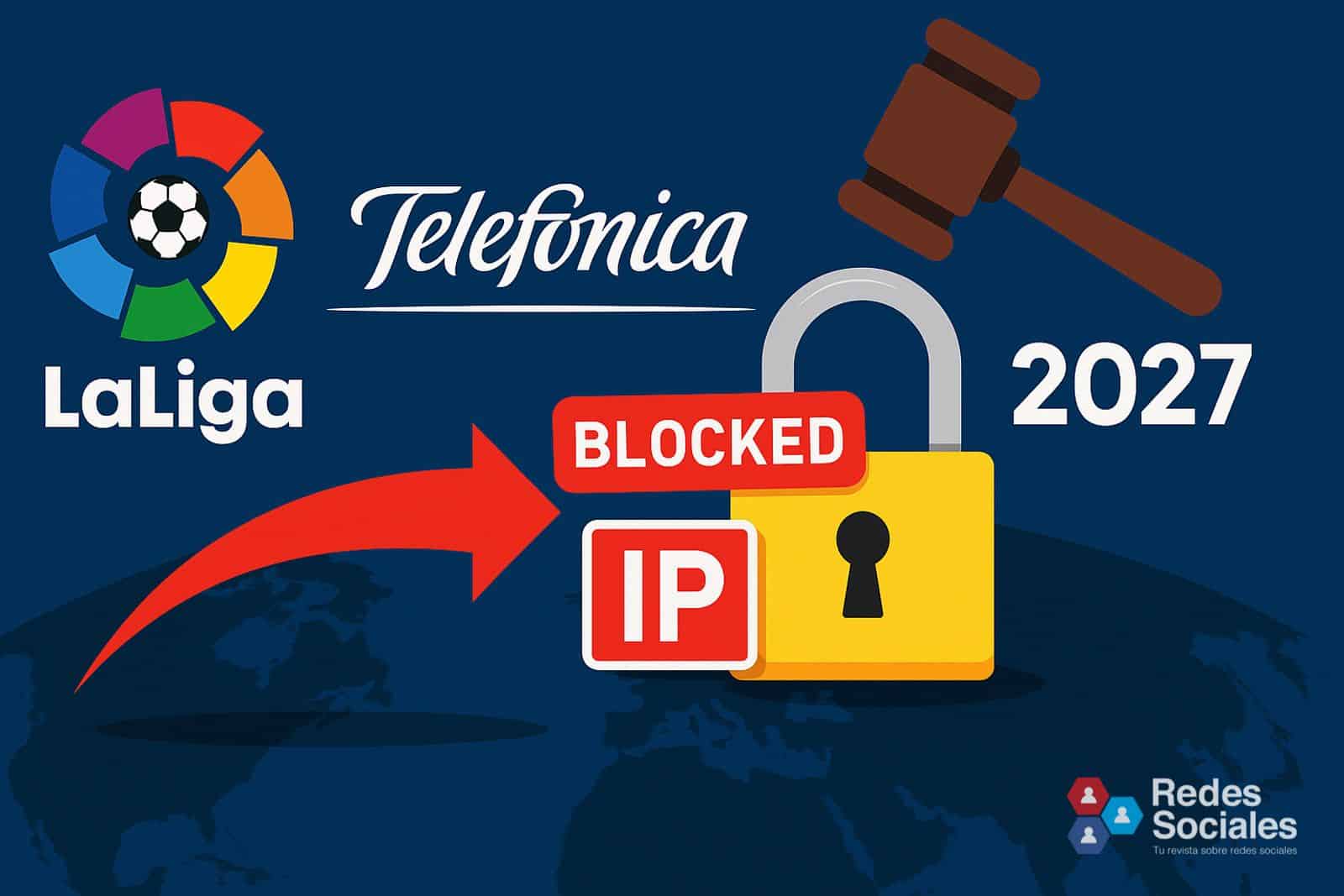Here’s the translation into American English:
The association emphasizes the importance of correctly applying court rulings that authorize IP blocking, and calls for greater commitment from services like Cloudflare
The Spanish Association for Digitalization, DigitalES, has issued a clear warning to the digital ecosystem: anti-piracy blockades mandated by the Spanish judiciary will not be effective if all internet intermediaries do not actively cooperate in their enforcement. In a recent statement, the tech sector’s employer association highlighted that while the main Spanish ISPs are complying with judicial rulings, some key players in the web traffic chain are still not systematically implementing the blockades.
This warning is set against the backdrop of a ruling from the Commercial Court No. 6 in Barcelona, which on December 18, 2024, authorized LaLiga and Telefónica (Movistar Plus+) to send lists of IP addresses linked to pirate broadcasts for immediate blocking by telecommunications operators. This measure goes beyond the traditional DNS blocking, considering that emerging technologies like ECH (Encrypted Client Hello) and Apple Private Relay allow pirate sites to easily circumvent such restrictions.
The Judicial Strategy: Comprehensive Blocking of IPs, Domains, and URLs
The judicial ruling explicitly acknowledges the ineffectiveness of DNS blocks against current evasion techniques, allowing for a combined approach: direct blocking of IPs, along with domains and URLs. Furthermore, the ruling empowers LaLiga and Telefónica to send updates of IP lists on match days, even in real-time, requiring operators to implement the block before the sporting event concludes.
A Blockade That Affects Thousands of Legitimate Users
However, the implementation of these blocks has caused far-reaching collateral effects, especially for legitimate websites that share infrastructure with restricted services. Since February, numerous users, companies, and professionals have reported inaccessibility to completely legal pages hosted on content delivery networks (CDNs) like Cloudflare.
This phenomenon has been widely documented in specialized media and technical forums, as well as in social media posts and digital complaint platforms. In many cases, the blocked IPs belong to shared environments, which means that access to hundreds of websites unrelated to piracy is unjustifiably interrupted, affecting e-commerce, media outlets, collaborative tools, and even institutional portals.
This situation is compounded by the opacity with which some operators are implementing the blocks, without visible notices to users or clear avenues for appeal, something that contrasts with the warning recently introduced by the provider Digi, yet which remains uncommon practice.
Cloudflare Opposes, but the Court Dismisses Its Appeal
One of the most notable aspects of the case has been Cloudflare Inc.’s attempt to invalidate the ruling, arguing supposed harms resulting from its enforcement. However, the court issued a final ruling with no possibility of appeal, which firmly rejects the U.S. provider’s request for nullification.
According to the court document, Cloudflare has not demonstrated any harm nor has there been any violation of fundamental rights, such as effective judicial protection. Consequently, the ruling that enables the blockades remains fully in force and executable.
What is at Stake for Internet Infrastructure?
The message from DigitalES transcends the legal realm and focuses on a key technical issue: the collaboration of intermediaries such as CDNs, reverse proxies, and anonymization services is crucial for making the blockades effective. If not, any measures imposed at the access network level can be neutralized by upper layers of the web ecosystem that do not cooperate.
The case of Cloudflare is paradigmatic, as its proxy and CDN services act as critical intermediaries between origin servers and end users, complicating the actual traceability of content when they do not apply filters or blocks in response to judicial requests.
A Call to the Digital Ecosystem
DigitalES reminds that ISPs in Spain are legally obligated to block not only pirate content, but also other illegal resources such as unauthorized gaming websites, illegal medications, terrorist content, or child pornography. The association emphasizes that, without the active cooperation of all involved parties—including CDN providers, hosting services, DNS platforms, and operators of encrypted tunnels—compliance with these orders becomes a technical chimera.
“The lack of collaboration from certain intermediaries is concerning and could facilitate the proliferation of illegal content on the Internet,” warns DigitalES, reaffirming its commitment to protecting intellectual property and to legitimate use of the digital ecosystem.
Conclusion: A Legal Tool with Unintended Side Effects
The developments surrounding this ruling set a legal and technical precedent in the fight against piracy in Spain, with potential implications beyond the audiovisual realm. Nonetheless, the application of mass blockades without precise segmentation and transparency may ultimately undermine trust in the network and harm the legitimate digital ecosystem. For players in the cloud, cybersecurity, web traffic, and hosting sectors, the message is clear: collaboration must be accompanied by technical responsibility and guarantees for legal services.
Via: DigitalES and Noticias Redes Sociales

